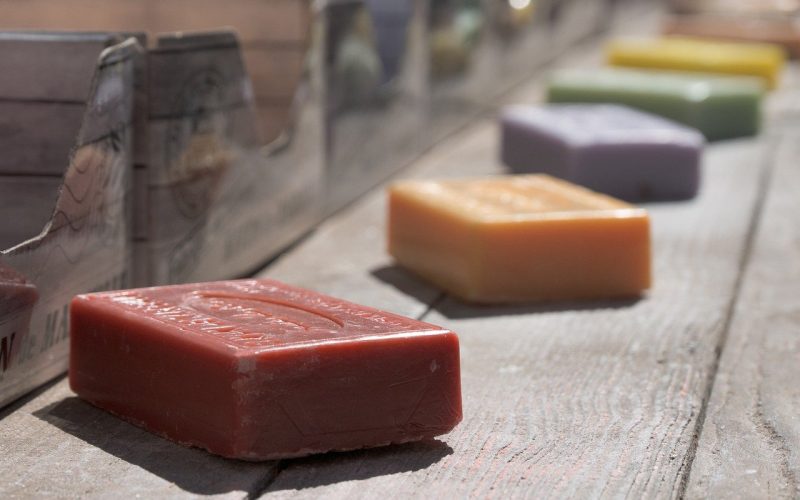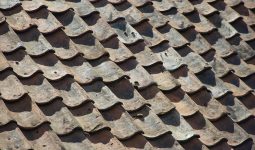The soap industry is always working hard to produce different types of soap. They try to produce a soap with a newer formula to surpass all the previous soap products they made.
Soaps are essential items for every household; you will surely use soap, no matter how you do it.
Furthermore, this lather-producing product, whether you like it or not, is an essential element of people’s hygiene. You use soap to bathe; you use it in the kitchen to wash your plate.
Whenever you have dirty laundry, you need soap to clean it. If your car is so dirty, you need soap to clean it.
This lather-producing product adds natural oils or fats with sodium hydroxide and other alkalis.
Coloring agents and scents can also be part of soap-making to give it some fragrance.
Furthermore, soaps are salts of fatty acid used for personal hygiene, and they are mainly classified based on the surface they are used to clean.
The primary aim of soap is generally for cleaning, but it is crucial to know the different types of soap available.
Furthermore, it is essential to know the other soaps because you won’t want to wash your face with soap to clean the plate.
So, let’s discuss the different types of soap available and what makes them different.
1. Toilet soaps/Bathing soaps
Toilet soaps and bathing soaps are among the different types of soap that have cosmetic uses. These types of soap are classified as one because people usually use them interchangeably.
However, looking closely at the two, they have significant differences. Furthermore, toilet soap contains much more total fatty material (TTM) than bathing soap. The TFM is responsible for how the soap will clean to some extent.
A soap with higher TFM will have a better cleaning property, unlike a soap with lower TFM.
Bathing soaps are generally inferior to toilet soaps based on their level of TFM because they still won’t produce a moisturizing effect and have lower cleaning properties.
Toilet soaps are one of the different types for three grades according to their TFM value: Grade 1, Grade 2, and Grade 3.
- Grade 1: Grade 1 is the grade in toilet soap with the highest TFM value, 76%. This type of soap makes an excellent lather. It can either be homogenous high-grade milled soap or both. It also comes in various colors and scents.
- Grade 2: Grade 2 is the second type of toilet soap with the highest grade after Grade 1. They contain up to 70% TFM value. They also make an excellent lather but do not lath as much as grade 1. Their color can be white or any other color. Furthermore, most soap available in the market is grade 2 soap.
- Grade 3: The TFM of this type of toilet soap is relatively low, having about 60% TFM value. The lathing properties are the poorest among all three grades, making their cleaning quality relatively low.
2. Laundry Soaps
Laundry soaps are one of the different types of soap available. These soaps are available in liquid, powder, and gel forms.
Nowadays, artificial means of making soap are rampant due to the scarcity of natural ingredients, such as goat fat and wood ash.
Furthermore, because most soap made today is synthetic, it is generally detergent, not soap. Detergents generally contain surfactants, which are present in all soap made for laundry.
However, these surfactants are responsible for removing dirt from your laundry. Surfactants can remove dirt because they have two ends: one is attracted to water, and the other is attracted to dirt, thereby removing the dirt.
3. Beauty Soaps/Bars
Beauty soap is one of the different types of soap meant to clean your face, as indicated in its name.
This type of soap is carefully made because it is for the delicate skin. It is suitable for different skin types and conditions.
Furthermore, when choosing a beauty soap, choose the one that will suit your skin type. You can get beauty bars for acne, dark spots, and bleaching enhancement.
Beauty bars bring about a moisturizing and hydrating effect to your skin. However, these soaps are called beauty bars because they are not natural ingredients.
According to the FDA, you can’t label what is not soap. Hence, this type of soap is a beauty bar because it is not made from natural materials.
Furthermore, beauty soaps can be available as bars, liquid washes, and gels on the market. They also come in different colors and have different compositions with scents.
4. Dish Soap
From its name, dish soap is a type of soap used to clean dishes. This type of soap can be called a dish detergent or dishwashing liquid.
Dish soap is generally not suitable for use on the skin because it contains strong chemicals that are sometimes unfriendly to the skin.
Furthermore, dish soap possesses high-quality surfactants, unlike other skin-friendly soaps. It contains a high level of surfactants because it doesn’t only clean the dish but also removes the oil and grease on it.
However, it is also worth noting that this type of soap foams a lot and is found in either diluted concentrates or concentrates that need to be diluted before use.
Lastly, they also come with many aromas and scents, leaving a refreshing aroma on dishes after washing.
5. Guest Soaps
Guest soaps are types of soaps that are available in the hotels for customers checking in. This type of soap is often small and comes with a lot of fragrance.
Furthermore, they are usually small. Guest soaps come in different colors. They also come with pleasing flavors for cleaning. They are also very mild on the skin.
However, there is nothing special about all these soaps. They are not prepared with different materials. They are only to give the guest a prissy impression about the hotel and nothing other than that.
6. Medicated Soaps
According to their name, medicated soaps are soaps that contain ingredients intended to treat one or more skin problems.
A medicated soap can treat skin conditions like acne, blackheads, rashes, pimples, fungi, and bacterial infections.
Furthermore, the ingredients used in making a medicated soap will be what you intend to use to treat or prevent.
There are several types of medicating soap in the market, and some of them are;
- Antibacterial soaps: Medicated soaps contain an antibacterial agent like tetrasodium EDTA. They are used to treat skin infected with bacteria or prevent it from getting infected.
- Antifungal Soaps: Antifungal soaps generally contain antifungal agents to combat skin fungal infections. They include extracts of medicinal plants and some essential oils that contain antifungal properties. They also have some vitamins, sulfur, Zinc oxides, etc.
- Medicated Soaps for Skin Problems: The skin is prone to problems besides bacterial and fungi infections. Excessive dryness and clogged pores are one problem. Common acne is another, and many medicated soaps are available in the markets to treat several of these skin problems. Furthermore, if you have a skin problem, use a medicated soap rather than regular soaps to combat it.
7. Novelty Soaps
Novelty soaps come in various colors and shapes. They are generally a type of soap that children love.
The beautiful shapes and colors of the soap provide lots of amusement and enjoyment for children.
8. Glycerin Soaps
Glycerin soaps contain glycerin, which is a component of fat or oil. They are one of the most moisturizing soaps and very gentle to the skin.
They are also very effective for any skin type, making it appear moisturized and healthy.
Furthermore, if you have susceptible skin that reacts with other regular soaps, a bar of glycerin soap is the best for you.
These types of soap are from natural ingredients, which makes them suitable for sensitive skin.
The skin reacts to other regular bar soaps because of synthetic chemicals, making them inappropriate for sensitive skin.
Furthermore, glycerin attracts moisture, which makes your skin moisturized. The humidity is also locked in, and your skin stays hydrated for hours.
9. Transparent Soaps
Transparent soaps are types of soaps that are transparent. They mix them in a hot alcohol solution.
The particles that remain undissolved in alcohol are filtered out. Hence, a transparent soap is formed.
Furthermore, transparent soaps are hard, and they find it very difficult to lather. They are not as moisturized as other regular soaps but are very effective for oily skin and acne.
10. Handmade Soaps
Handmade soap is one of the different soap types made in small batches from natural ingredients. It contains natural ingredients only, which makes it costly.
Furthermore, they are from base oils like coconut, olive, palm, etc. These ingredients are essential for the skin’s health. Handmade soaps are generally safer than and gentle on the skin.
They do not contain strong chemicals, making them a good option for people with sensitive skin.









It’s nice that you mentioned how the primary aim of soap is generally for cleaning, but it is crucial to know the different types of soap available. I was at the supermarket yesterday and I saw quite a variety of soaps on one of the shelves. It seems there are even spiritual cleaning soaps now, which is pretty fascinating.